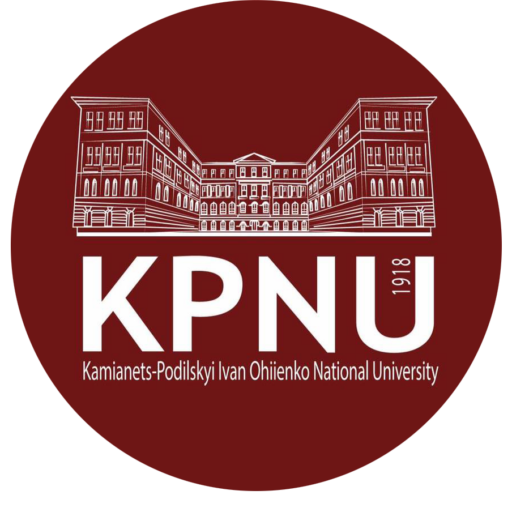Oleksandr Berkuta
Kamianets-Podilskyi Ivan Ohiienko National University
Scientific Supervisor: PhD, Kryshtaliuk A. A.
CONCEPT DREAM IN THE AMERICAN POLITICAL DISCOURSE
The paper deals with the concept DREAM and its realization and verbalization in the political discourse. The investigation is conducted on the basis of Luther Martin King’s speech “I have a Dream”. It has been specified that in King’s speech the concept DREAM contains such a central component as social one which is specified as equality, brotherhood, justice and freedom.
Keywords: concept DREAM, political discourse, social component, brotherhood, justice, freedom.
Concept is a mental unit that accumulates our experience and knowledge in a generalized way [3, p. 98]. We view concepts as grounded in sensory-motor experience and image schemas. Image schemas are elementary mental structures that can structure larger constructs in terms of their meaning.
The concept DREAM has influenced considerably the conceptualization of the world by Americans. «American dream is a staple of American self-portrait» [2, p. 218]. Scholars have come to conclusion that the main components of the concept DREAM are success orientation and material prosperity, which are based on the idea of equal opportunities for all citizens of America [1, p. 68]. We consider them specific components of the concept DREAM. The more generalized components of this concept are cognitive, national, social, historical and economical.
In this article the noun dream is defined as “a strongly desired purpose or goal” [Dic Entry]. Dream in the sense of “that which is presented to the mind by the imaginative faculty, though not in sleep” is from 1580s. The meaning “ideal or aspiration” is from 1931, from the earlier sense of “something of dream-like beauty or charm” (1888). The notion of “ideal” is behind dream girl (1850), etc. [6]. The study of its meaning shows that the concept DREAM correlates with the idea of IDEAL.
The aim of this paper is to find out how the generalized components of the concept DREAM are verbalized in the American discourse. For the analysis we have chosen the famous speech “I Have a Dream” by Martin Luther King, Jr. Martin Luther King, Jr., a symbolic figure of American blacks and a world figure. He led protests and demonstrations struggling for civil rights. He directed the peaceful march on Washington, D.C., of 250,000 people to whom he delivered his address, “l Have a Dream”.
In King’s speech the concept DREAM contains such a central component as social one which is specified as equality, brotherhood, justice and freedom. These components are conceptualized metaphorically. Men are viewed as created objects of equal rank, e.g. […] all men are created equal [5]. Then the location of men is specified, e.g. […] to sit down together at the table of justice [5], an oasis of freedom and justice [5]. In the text of the speech all these components make a unity, and it means that people of the country create a new whole with equal importance of everyone.
Transformation of personal pronouns from I to we underlies unity in which the sender merges with the audience. King addresses his speech both to direct recipients (you) who are the participants of the demonstration, e.g. I am happy to join with you today in what will go down in history as the greatest demonstration for freedom in the history of our nation [5]; and indirect recipients, represented as the third party spoken about (Negro slaves), e.g. This momentous decree came as a great beacon light of hope to millions of Negro slaves [5].
The concept DREAM turns out to be very meaningful and contains other concepts belonging to the social layer of the DREAM concept. DREAM is conceptualized through foregrounding such inside concepts Freedom, justice, life, liberty, happiness, prosperity and backgrounding others like slavery, injustice, oppression, poverty. Contrast is the basic device of organizing the inner meaning of the concept DREAM. The topicalization of the content of the concept DREAM is achieved by repetition of the introductory phrase “I Have a Dream”. All inner concepts are conceptualized through the prism of the concept DREAM.
In his speech the concept DREAM is conceptualized as IDEAL DESTINATION that is shown through the connection of the present and future, e.g. “[…] I have a dream today! I have a dream that one day […]” (speech). In King’s speech DREAM is also conceptualized as OBJECT in CONTAINER, or PART of WHOLE, e.g. […] It is a dream deeply rooted in the American dream […] [5]. King’s dream is a part of the American dream.
We conclude that in King’s speech the concept DREAM belongs to the social conceptual domain and accentuates such values as equality, brotherhood, freedom and justice. The perspectives of further research are to do a detailed cognitive-communicative analysis of the concept DREAM in the American discourse.
References
- Карпова К.С. Вербалізація національно-специфічних концептів американського суспільства ХХ – початку ХХІ століття : дис. … канд. філол. наук : 10.02.04 / Київський національний університет імені Тараса Шевченка . Київ, 2008. 259 c.
- Кирилюк М.П., Палєй Т.А. Аналіз складу лексико-семантичного поля на позначення концепту культурний код (на матеріалі американського варіанту англійської мови). Молодий вчений. №1, Вип. 53. С. 214–219.
- Краткий словарь когнитивных терминов / за ред. Е.С. Кубрякова, В.З. Демьянков, Ю.Г. Панкрац, Л.Г. Лузина. Москва, 1997. 245 с.
- “Dream.”Merriam-Webster.com Dictionary, Merriam-Webster : web-site. URL: https://www.merriam-webster.com/dictionary/dream. Accessed 8 Mar. 2021.
- King Martin Luther, Jr. I have a Dream : web-site. URL: https://www.americanrhetoric.com/speeches/mlkihaveadream.htm
- Online Etymology dictionary : web-site. URL: https://www.etymonline.com/search?q=dream
